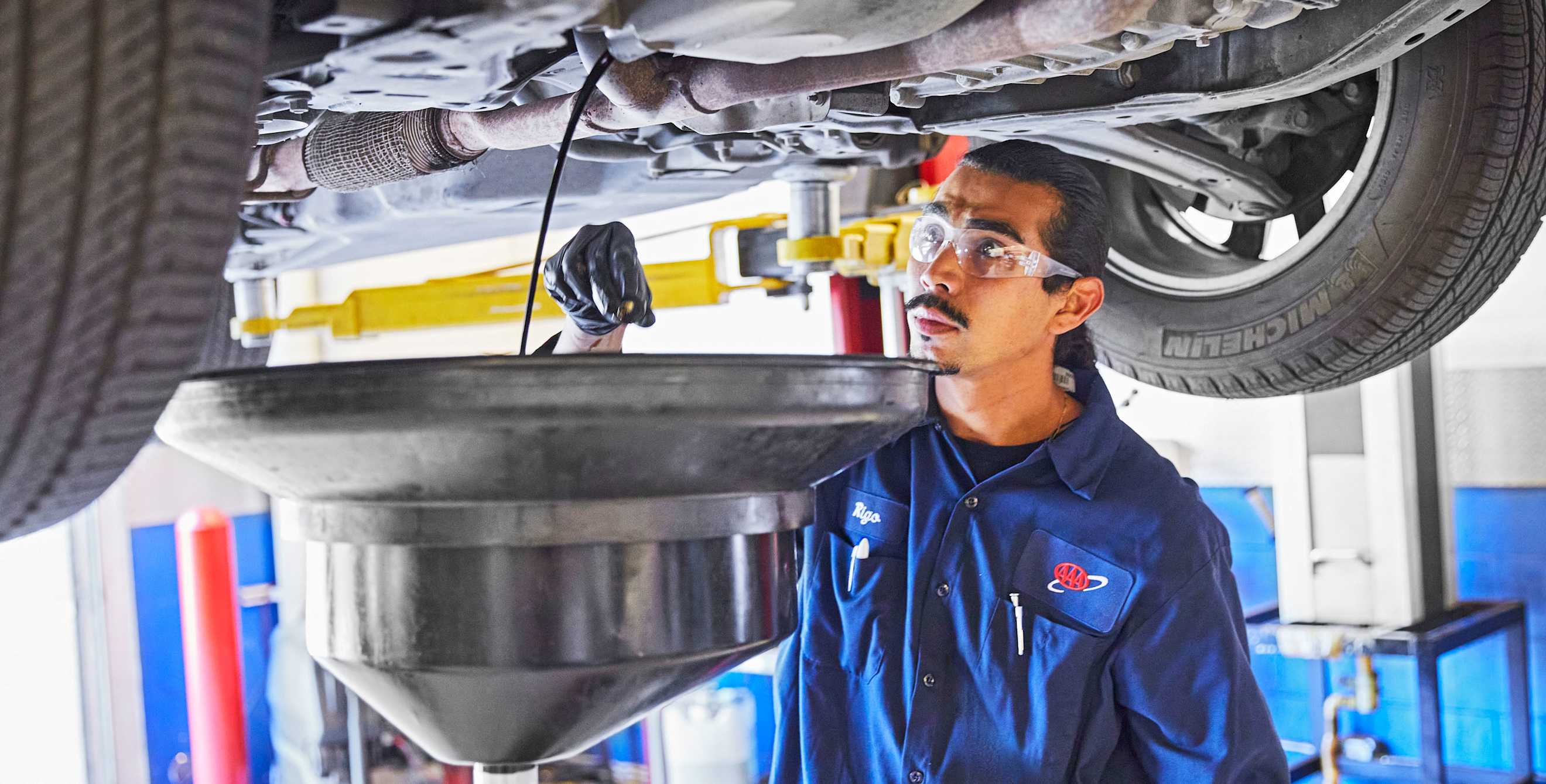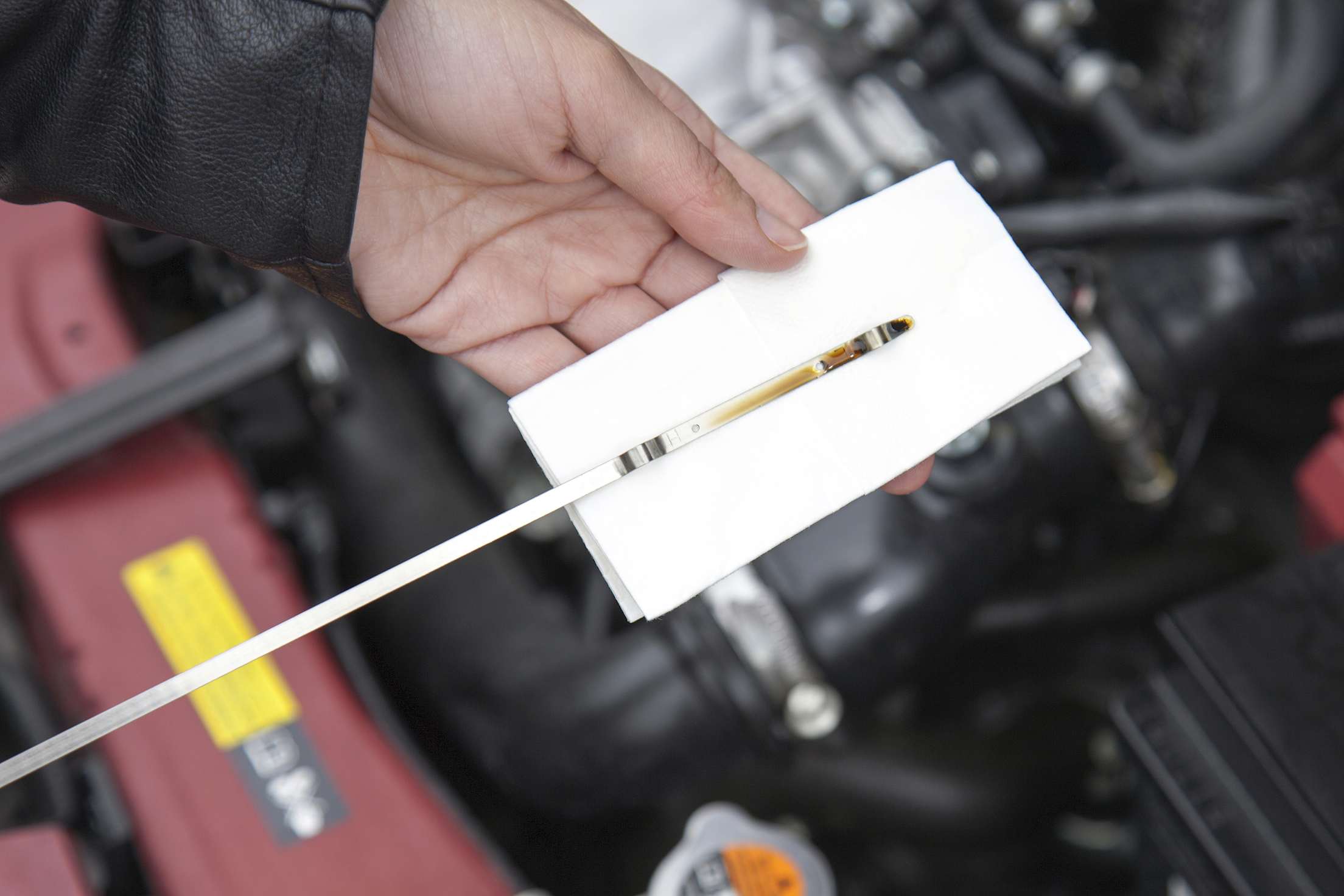
Your Top Oil Change Questions Answered
AAA experts answer all the most burning questions about oil changes.

Getting the oil changed in your vehicle is a routine part of automotive maintenance. It’s also critical, so it’s best not to leave anything to doubt. Here are answers to common questions about the job.
How often do you really need an oil change?
As technology evolves, so do maintenance standards. Many of us have heard that we should change the oil every three months or 3,000 miles. But while that may have been true for your grandpa’s Gremlin, with modern vehicles, it no longer applies, says Jarrett Kerrigan, director of mobility for AAA Northern California, Nevada, and Utah.
The real answer is that it all depends on your vehicle’s make and model. “Some new vehicles only require a change in engine oil every 10,000 miles,” Kerrigan says, while older vehicles might call for more frequent intervals. The guidelines you should follow are printed in your vehicle’s service manual. Changing the oil more frequently than what’s recommended won’t do any harm, but it’s an unnecessary expense.
What does it mean when the oil light comes on?
There are actually two lights to consider, Kerrigan says. The first is a small red oil light that looks like an oil can with a drip. This indicator is designed to come on when the vehicle has low oil pressure. Low oil pressure is a problem because it prevents the oil from moving through small passages to provide lubrication to the engine parts that need it. Low oil pressure is usually a sign that your oil is either filled too high or too low. It may also be a sign that you have high oil consumption, which can point to other problems. If this light comes on, Kerrigan says to “pull over and check your oil ASAP.”
The second light or indicator is a maintenance light. It is designed to appear based on the mileage you have driven, usually corresponding to the manufacturer’s recommended maintenance schedule. However, in many cases, it may indicate that your vehicle needs more than an oil change. If you see this light, bring your vehicle to a trusted auto repair shop to get it checked.
Are there other signs you might need an oil change?
Oil will become darker as it runs through an engine, so changes in color aren’t always a clue that it’s time for a change. But if the oil is dark and gritty, then it’s likely picking up dirt and other particles, which prevents the oil from doing its job properly.
A common perception is that old or dirty oil can reduce fuel efficiency and affect other aspects of your vehicle’s performance. But according to Randy Tinsley, an auto service manager with AAA Arizona, there is no hard evidence that this is true. “If there is proof that it has any impact on your gas mileage, I haven’t seen it,” Tinsley says. Kerrigan agrees.
Any other impact on performance, such as reduced horsepower, is likely to go unnoticed by the average driver. And besides, Kerrigan notes, “if it gets to that point, you may have already done damage to your vehicle.” The bottom line, he says, is that it’s important to be vigilant and keep a close watch on your oil, “because it’s better to be safe than sorry.”

How do you check your oil?
The engine should be off for at least 2–3 minutes and your vehicle should be parked on level ground. Open the hood, remove the dipstick (the location of the dipstick varies depending on the vehicle, but if your vehicle is front-wheel drive, it will be located toward the front of the engine), wipe it clean with a towel or rag, then reinsert it and remove it again. The oil levels should be between the two markers on the stick. It’s a good idea to check your oil regularly. “My recommendation is, anytime you fill your tank, check your oil,” Kerrigan says. If that feels too burdensome, Tinsley recommends checking every 1,000 miles.
Why are regular oil changes important?
Oil is designed to limit friction and heat inside the engine. Over time, it loses its viscosity and gets dirty, making it more difficult for the oil to do its job. Gritty oil can clog engine parts, and without proper lubrication and heat protection, the engine becomes susceptible to serious damage. This can lead to costly repairs.
Does the type of oil you use matter?
Not all motor oil is created equal. Scour the shelves at your local auto parts store, and you’ll see different types, including regular or conventional oil, synthetic oil, and a blend of the two. Regular oil is a naturally occurring fossil fuel, while synthetic oil, as its name suggests, is a manufactured product designed to mimic the properties of regular oil. Synthetic oil usually costs more, but it also tends to last longer and provides your engine with greater protection, especially in extreme conditions, such as high heat.
The better the oil, the more you’ll pay, but the extra expense is relatively modest and usually well worth it. Kerrigan recommends always following the manufacturer’s recommendations or better. With older vehicles, he notes, it’s a good idea to use high-mileage oils, which have additives that help to maintain the oil’s viscosity and can prevent leaks. “Based on the age and condition of your vehicle, it doesn’t hurt to ask questions and get recommendations when you bring your vehicle in for an oil change,” he says. “And it’s not a bad idea to spend a little extra.”
Why is it a good idea to leave oil changes to the professionals?
Can you change your oil yourself? Yes. Is it easy? No. It’s a hot, messy, and potentially hazardous job that requires lifting your vehicle on a jack stand.
A trusted professional has the experience and expertise to change your oil quickly and efficiently, with a guarantee that the work will be done right. And because they already have all the necessary materials and equipment, it will likely cost you less than doing it yourself. What’s more, reliable shops can take care of a bunch of extras along the way, such as rotating your tires, checking the brakes, and topping off other fluids. They will also make sure that the old oil is disposed of or recycled properly.
When it’s time for an oil change, look for a AAA-Approved or AAA-Owned Auto Repair Center near you.
Save 10% on labor, up to $75, and get an extended warranty on parts and labor.*